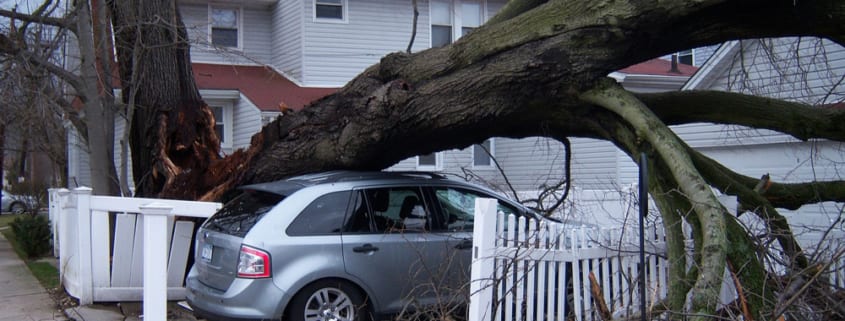Auto Insurance Exclusions
Many drivers assume that their auto insurance policies cover a lot more than they actually do, and they only learn the truth after their claims are denied by their insurance carriers. If you’re unsure what your policy does and does not cover, it’s best to go over your insurance agreement with a qualified agent. However, here are some of the more common auto insurance exclusions.
Commercial Use of Personal Vehicle
Folks with a side hustle—beware! If you’re a rideshare driver, do food or grocery delivery, have business equipment installed (like a snow plow), or you let employees use your personal vehicle on a regular basis, any auto insurance claims made for activity during these times probably won’t be covered. Depending on the services being rendered, these activities fall under Business Purpose or Livery Conveyance, and for proper coverage you should consider commercial auto insurance.
Did you know that while DUI incidents are down, road fatalities have increased 3% since the emergence of ridesharing? Experts believe this is related to the overall increase of vehicles on the road. Lack of proper insurance can impact both the drivers and their customers—as a passenger, any injuries or damages you sustain as a result of a rideshare accident might not be covered. Companies like Uber and Lyft tend to have third-party liability insurance for such situations, but it never hurts to check before taking part in such a service.
Unapproved Modifications
Aftermarket equipment in and on vehicles is rather common (and some can even save you money on insurance rates, like anti-theft devices). However, some people spend thousands of dollars to trick out their cars, from engine modifications to cosmetics, and unless you’ve informed your insurance company about the modifications, damages to them might not be covered by your auto insurance policy. This doesn’t apply only to lift kits, rims, stereo equipment, and flashy body work—even damage to medical equipment like wheelchair lifts can be denied if the gear isn’t specifically listed in your policy.
You could also cause financial hardship to passengers and other motorists if there’s an accident and your modifications haven’t been properly documented and insured. Just having unapproved modifications in your vehicle is enough to have claims made against you thrown out.
Acts of Nature/Acts of God
The northeast US is no stranger to falling trees, whether from heavy snow or wild winds. Unless you have comprehensive auto insurance coverage, you’re probably not protected against acts of nature like hail, flying debris, falling trees, floods, tornadoes, hurricanes, and wildfire. With the increase in storm severity, we strongly suggest that you review this portion of your auto insurance policy closely. Your particular geographic location may require more specific policy customization.
Also usually covered by comprehensive insurance are “acts of crime” like theft and vandalism. However, personal items stolen from inside the vehicle aren’t usually covered by auto insurance, but they are probably covered by your Homeowners or Renters policy.
Intentional Damage
This may seem like a joke, but to anyone who heard about the incident on the Mass Pike back in January, some people intentionally use their cars as weapons, to damage other people or property. Guess what? Your insurance company is probably not going to cover that damage or any injuries that result from your road rage. They’re also not going to cover any damage you do to your own car to blow off steam, like kicking in the door or smashing glass, nor are they going to cover any damage you do on purpose to try to get an insurance settlement, like crashing your car intentionally to get it replaced. As discussed last month in “My Car Was Stolen… What Do I Do?” the insurance company will thoroughly investigate any suspected case of fraud to avoid a payout.
In case you were wondering, your auto policy also won’t cover unintentional damage caused by unnecessary actions, like drag racing or driving donuts in the snow in an empty parking lot.
Named Driver Exclusions
In most cases, if you let a friend or relative borrow your car, they’d be covered under your personal auto policy. They’re what is known as permissive drivers. However, with a Named Driver Exclusion you can officially exclude high-risk drivers from your policy, like your teenager or a spouse with a poor driving record. (Why would you do this? Lower liability rates, of course.) Any use of your vehicle by the excluded driver is not covered by your auto insurance policy, therefore any damages or injuries caused during such use are also not covered.
Figuring What’s In and What’s Out
Every insurance agreement is different, so even if you have comprehensive insurance, don’t make assumptions about how well you are covered. If you would like to review your personal auto insurance policy with the professionals at Banas & Fickert, contact us today. Forewarned is forearmed!



